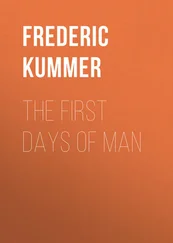Frederic Isham - The Strollers
Здесь есть возможность читать онлайн «Frederic Isham - The Strollers» — ознакомительный отрывок электронной книги совершенно бесплатно, а после прочтения отрывка купить полную версию. В некоторых случаях можно слушать аудио, скачать через торрент в формате fb2 и присутствует краткое содержание. Жанр: foreign_prose, на английском языке. Описание произведения, (предисловие) а так же отзывы посетителей доступны на портале библиотеки ЛибКат.
- Название:The Strollers
- Автор:
- Жанр:
- Год:неизвестен
- ISBN:нет данных
- Рейтинг книги:5 / 5. Голосов: 1
-
Избранное:Добавить в избранное
- Отзывы:
-
Ваша оценка:
- 100
- 1
- 2
- 3
- 4
- 5
The Strollers: краткое содержание, описание и аннотация
Предлагаем к чтению аннотацию, описание, краткое содержание или предисловие (зависит от того, что написал сам автор книги «The Strollers»). Если вы не нашли необходимую информацию о книге — напишите в комментариях, мы постараемся отыскать её.
The Strollers — читать онлайн ознакомительный отрывок
Ниже представлен текст книги, разбитый по страницам. Система сохранения места последней прочитанной страницы, позволяет с удобством читать онлайн бесплатно книгу «The Strollers», без необходимости каждый раз заново искать на чём Вы остановились. Поставьте закладку, и сможете в любой момент перейти на страницу, на которой закончили чтение.
Интервал:
Закладка:
“Thank you,” said the soldier, at the same time rising from his chair. “I have no inclination so early in the day.”
“Early?” queried the newcomer. “A half-pint of Chateau Cheval Blanc or Cru du Chevalier, high and vinous, paves a possible way for Brother Jonathan’s déjeuner – fried pork, potatoes and chicory!” And turning to his servant who had meanwhile entered, he addressed a few words to him, and, as the door closed on the soldier, exclaimed with a shrug of the shoulders:
“An unsociable fellow! I wonder what he is doing here.”
CHAPTER III
AN INCOMPREHENSIBLE VENTURE
Pancakes, grits, home-made sausage, and, before each guest, an egg that had been proudly heralded by the clucking hen but a few hours before–truly a bountiful breakfast, discrediting the latest guest’s anticipations! The manager, in high spirits, mercurial as the weather, came down from his room, a bundle of posters under his arm, boisterously greeting Saint-Prosper, whom he encountered in the hall:
“Read the bill! ‘That incomparable comedy, The Honeymoon, by a peerless company.’ How does that sound?”
“Attractive, certainly,” said the other.
“Do you think it strong enough? How would ‘unparagoned’ do?”
“It would be too provincial, my dear; too provincial!” interrupted the querulous voice of the old lady.
“Very well, Madam!” the manager replied quickly. “You shall be ‘peerless’ if you wish. Every fence shall proclaim it; every post become loquacious with it.”
“I was going to the village myself,” said the soldier, “and will join you, if you don’t mind?” he added suddenly.
“Mind? Not a bit. Come along, and you shall learn of the duties of manager, bill-poster, press-agent and license-procurer.”
An hour or so later found the two walking down the road at a brisk pace, soon leaving the tavern behind them and beginning to descend a hill that commanded a view to eastward.
“How do you advertise your performances?” asked the younger man, opening the conversation.
“By posters, written announcements in the taverns, or a notice in the country paper, if we happen along just before it goes to press,” answered Barnes. “In the old times we had the boy and the bell.”
“The boy and the bell?”
“Yes,” assented Barnes, a retrospective smile overspreading his good-natured face; “when I was a lad in Devonshire the manager announced the performance in the town market-place. I rang a cow-bell to attract attention and he talked to the people: Ding-a-ling!–‘Good people, to-night will be given “Love in a Wood”;’ ding-a-long!–‘to-morrow night, “The Beaux’ Strategem‘”;’ ding!–‘Wednesday, “The Provoked Wife”;’ ling!–‘Thursday, ”The Way of the World.”’ So I made my début in a noisy part and have since played no rôle more effectively than that of the small boy with the big bell. Incidentally, I had to clean the lamps and fetch small beer to the leading lady, which duties were perfunctorily performed. My art, however, I threw into the bell,” concluded the manager with a laugh.
“Do you find many theaters hereabouts?” asked the other, thoughtfully.
Barnes shook his head. “No; although there are plenty of them upon the Atlantic and Southern circuits. Still we can usually rent a hall, erect a stage and construct tiers of seats. Even a barn at a pinch makes an acceptable temple of art. But our principal difficulty is procuring licenses to perform.”
“You have to get permission to play?”
“That we do!” sighed the manager. “From obdurate trustees in villages and stubborn supervisors or justices of the peace in the hamlets.”
“But their reason for this opposition?” asked his companion.
They were now entering the little hamlet, exchanging the grassy path for a sidewalk of planks laid lengthwise, and the peace of nature for such signs of civilization as a troop of geese, noisily promenading across the thoroughfare, and a peacock–in its pride of pomp as a favored bird of old King Solomon–crying from the top of the shed and proudly displaying its gorgeous train. Barnes wiped the perspiration from his brow, as he answered:
“Well, a temperance and anti-theatrical agitation has preceded us in the Shadengo Valley, a movement originated in Baltimore by seven men who had been drunkards and are now lecturing throughout the country. This is known as the ‘Washington’ movement, and among the most formidable leaders of the crusade is an old actor, John B. Gough. But here we are at the supervisor’s office. I’ll run in and get the license, if you’ll wait a moment.”
Saint-Prosper assented, and Barnes disappeared through the door of a one-story wooden building which boasted little in its architectural appearance and whose principal decorations consisted of a small window-garden containing faded geraniums, and a sign with sundry inverted letters. The neighborhood of this far from imposing structure was a rendezvous for many of the young men of the place who had much leisure, and, to judge from the sidewalk, an ample supply of Lone Jack or some other equally popular plug tobacco. As Saint-Prosper surveyed his surroundings, the Lone Jack, or other delectable brand, was unceremoniously passed from mouth to mouth with immediate and surprising results so far as the sidewalk was concerned. Regarding these village yokels with some curiosity, the soldier saw in them a possible type of the audiences to which the strollers must appeal for favor. To such hobnails must the fair Rosalind say: “I would kiss as many of you as had beards that pleased me.” And the churls would applaud with their cowhide boots, devour her with eager eyes and–at this point the soldier found himself unconsciously frowning at his village neighbors until, with an impatient laugh, he recalled his wandering fancies. What was it to him whether the players appeared in city or hamlet? Why should he concern himself in possible conjectures on the fortunes of these strollers? Moreover–
Here Barnes reappeared with dejection in his manner, and, treading his way absent-mindedly past the Lone Jack contingent with no word of explanation to his companion, began to retrace his steps toward the hostelry on the hill.
“Going back so soon?” asked the young man in surprise.
“There is nothing to be done here! The temperance lecturer has just gone; the people are set against plays and players. The supervisor refuses the license.”
With which the manager relapsed into silence, rueful and melancholy. Their road ran steadily upward from the sleepy valley, skirting a wood where the luxuriance of the overhanging foliage and the bright autumnal tint of the leaves were like a scene of a spectacular play. Out of breath from the steepness of the ascent, and, with his hand pressed to his side, Barnes suddenly called a halt, seated himself on a stump, his face somewhat drawn, and spoke for the first time since he left the hamlet.
“Let’s rest a moment. Something catches me occasionally here,” tapping his heart. “Ah, that’s better! The pain has left. No; it’s nothing. The machinery is getting old, that’s all! Let me see–Ah, yes!” And he drew a cigar from his pocket. “Perhaps there lies a crumb of comfort in the weed!”
The manager smoked contemplatively, like a man pushed to the verge of disaster, weighing the slender chances of mending his broken fortunes. But as he pondered his face gradually lightened with a faint glimmer of satisfaction. His mind, seeking for a straw, caught at a possible way out of this labyrinth of difficulties and in a moment he had straightened up, puffing veritable optimistic wreaths. He arose buoyantly; before he reached the inn the crumb of comfort had become a loaf of assurance.
Читать дальшеИнтервал:
Закладка:
Похожие книги на «The Strollers»
Представляем Вашему вниманию похожие книги на «The Strollers» списком для выбора. Мы отобрали схожую по названию и смыслу литературу в надежде предоставить читателям больше вариантов отыскать новые, интересные, ещё непрочитанные произведения.
Обсуждение, отзывы о книге «The Strollers» и просто собственные мнения читателей. Оставьте ваши комментарии, напишите, что Вы думаете о произведении, его смысле или главных героях. Укажите что конкретно понравилось, а что нет, и почему Вы так считаете.












